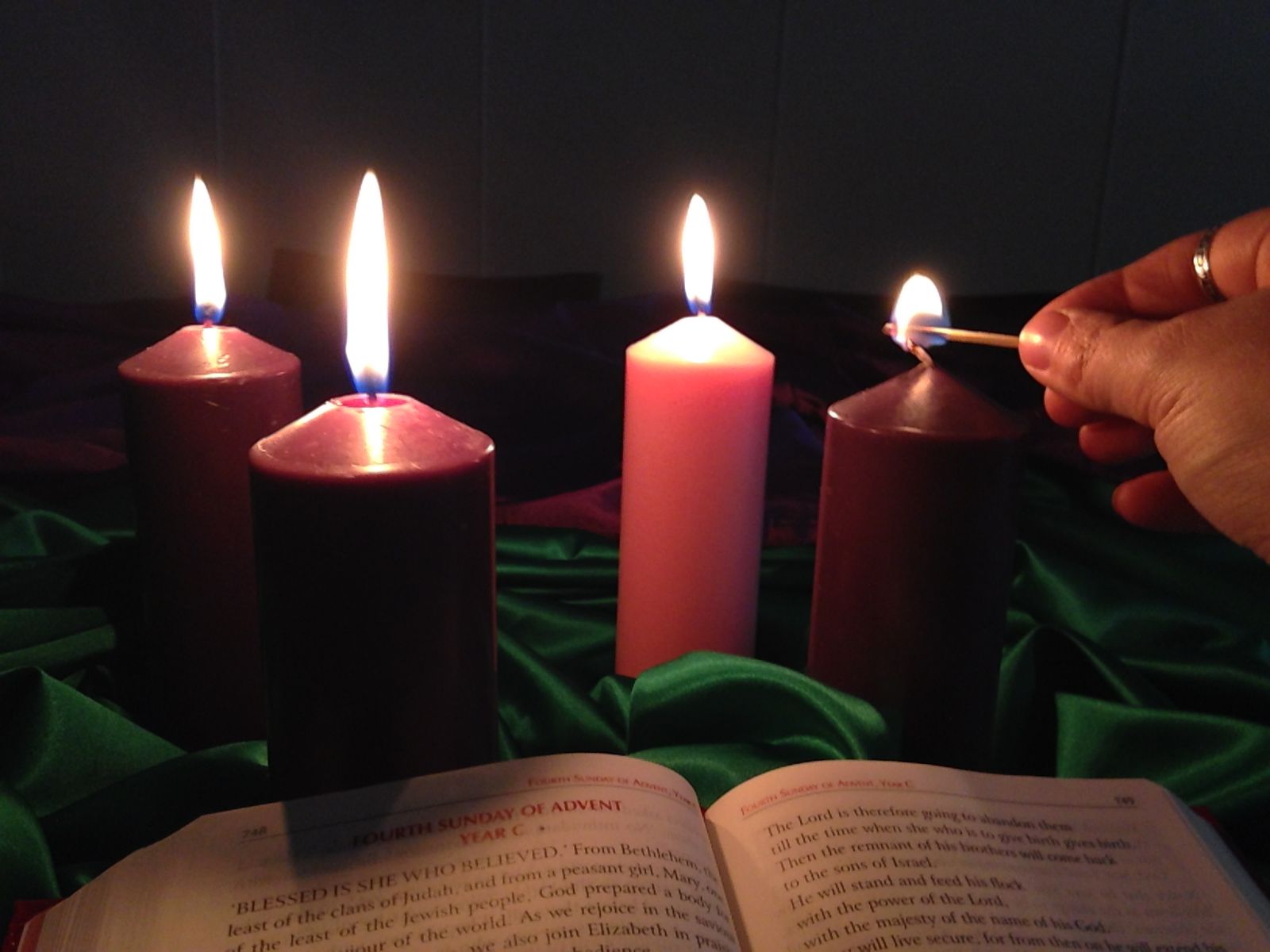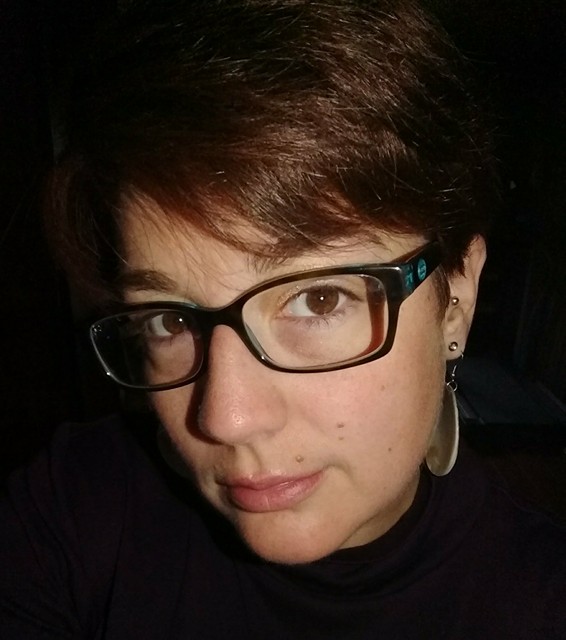This week, we take a break from our four-part series, “The Bible As…” by Jon Prater, to welcome a new writer to the Brethren Life & Thought Blog as Elizabeth Murray, of Anderson University, shares her insightful Advent reflections.
In this Advent season of waiting, I find myself meditating on how much of my life is bound up in the tension between anticipation and foreboding. When am I waiting patiently, and when am I just waiting for the other shoe to drop or otherwise delaying out of fear?
There are those, like my brother, who believe if you expect nothing, you’ll never be disappointed, but can we really stop ourselves from living in expectation? Would it be healthy for us to try?
I know myself well enough to recognize that I thrive on anticipation. I relish the steps between here and some planned-for there. I love to check off the boxes as I prepare for a trip.
Flight? Check.
Hotel? Check.
Ground transportation? Check.
Entertainment plans? Check.
As I check off each box, my eyes narrow with delight, knowing that this expectation will soon become a reality, that each step is guiding me where I want to go. Sometimes, though, I languish in delaying my joy.
I think many of us play this game with ourselves. We feel somehow undeserving of happiness, of met expectations. We’ll say to ourselves that only once we reach a goal weight, the completion of a degree, the purchase or sale of property, or some other arbitrary feat will we be worthy of our joy. It is as if we believe in doing these things, we’ll become bulletproof to loss. We delay going after our goals because we fear that losing our joy will be worse than never attaining it at all.
Brene Brown, social worker and shame researcher, points out, “Joy is the most vulnerable emotion we experience, and if you cannot tolerate joy, what you do is you start dress rehearsing tragedy.”
She points out that this fragility leads us down the path of foreboding. She gives the example of being awash in love for an infant child, standing over their crib as they sleep, then turning away from this joy by saying, “I don’t know what I’d do if anything ever happened to them.” We begin rehearsing these moments, she says, as if doing so will truly prepare us – as if spending time in these fearful feelings will make us impervious to loss. It’s safe to feel there is something we can do to protect ourselves, but the truth is, Brown says, there is no way to actually prepare. All we are doing is spending time in fear and in this rehearsal of tragedy rather than focusing on gratitude and joy.
How would our lives look different if we lived in joy instead of fear?

As a person of faith, I’ve struggled with using the virtue of patience as a scapegoat for my fear. I’ve dressed up my foreboding in the cloak of patiently waiting, pretending that it was faith rather than fear that kept me standing still. Yes, we must be patient. We must be willing to sit in stillness, take time to discern our paths, and do so with grace and peace. This peaceful waiting, though, is different than the gut-wrenching wait for that which we are too afraid to pursue.
In Romans 15:13, the scripture acknowledges that faith and joy are bound to one another – “May the God of hope fill you with all joy and peace in believing, so that you may abound in hope by the power of the Holy Spirit.” (NRSV). Without the peace of trusting in God’s support – or more broadly our resilience to failing – our fear can wind up looking a lot like patience unless we take steps to tell them apart.
How do we take these steps out of fear and into faith?
There is some agreement across disciplines that gratitude is among our greatest tools. Philippians 4:6-7 tells us “Don’t be anxious about anything; rather, bring up all of your requests to God in your prayers and petitions, along with giving thanks. Then the peace of God that exceeds all understanding will keep your hearts and minds safe in Christ Jesus.” (CEB) Brown’s research found this early Christian advice in action. In her interviews, she says, “People were quick to point out the differences between happiness and joy as the difference between a human emotion that’s connected to circumstances and a spiritual way of engaging with the world that’s connected to practicing gratitude.”1
This active practice of gratitude helps us see through our fear. It helps us live in joy and understand the times when we must be patient in discerning our paths while being courageous enough to take them when the time comes. Without gratitude and joy, our fear leaves us standing at a crossroads, unable to be the active and engaged hands and feet of God at work in the world. Without patience, we stomp carelessly into the world around us. Without faith, we take little action at all. Thankfulness isn’t just a mealtime prayer or words tossed off because we feel like we’re supposed to. It must be at the center of our spiritual practice. It must be tangible and active. Yes, we give God our thanks and praise because He is worthy, but we also give it because we need to be thankful to be fully engaged servants.
 As I wait in anticipation of Christmas and a new year, I give thanks and try to live in a joy that helps me have the courage to wait in stillness instead of standing still in fear.
As I wait in anticipation of Christmas and a new year, I give thanks and try to live in a joy that helps me have the courage to wait in stillness instead of standing still in fear.
 Elizabeth Murray grew up in Anderson, Indiana, the daughter of two music professors. She earned her bachelor’s degree from Smith College in Northampton, Mass., and returned to Indiana to begin a career in journalism. She now works in digital content for Anderson University, founded by and affiliated with the Church of God movement, and is pursuing a Master’s degree in strategic communication at Purdue University. She is active as a member of First United Methodist Church in Anderson, Ind., the congregation into which she was confirmed in 1997.
Elizabeth Murray grew up in Anderson, Indiana, the daughter of two music professors. She earned her bachelor’s degree from Smith College in Northampton, Mass., and returned to Indiana to begin a career in journalism. She now works in digital content for Anderson University, founded by and affiliated with the Church of God movement, and is pursuing a Master’s degree in strategic communication at Purdue University. She is active as a member of First United Methodist Church in Anderson, Ind., the congregation into which she was confirmed in 1997.
Elizabeth has a deep love of stories and storytelling and sees writing as a way to forge connection and community. Through sharing knowledge, she believes we come to see what we have in common is greater than what separates us
- https://www.eomega.org/article/gratitude-is-the-key-to-a-joyful-life
Image Credits: Project Zion Podcast, Pinterest, and Catholic Life – Diocese of La Crossee


